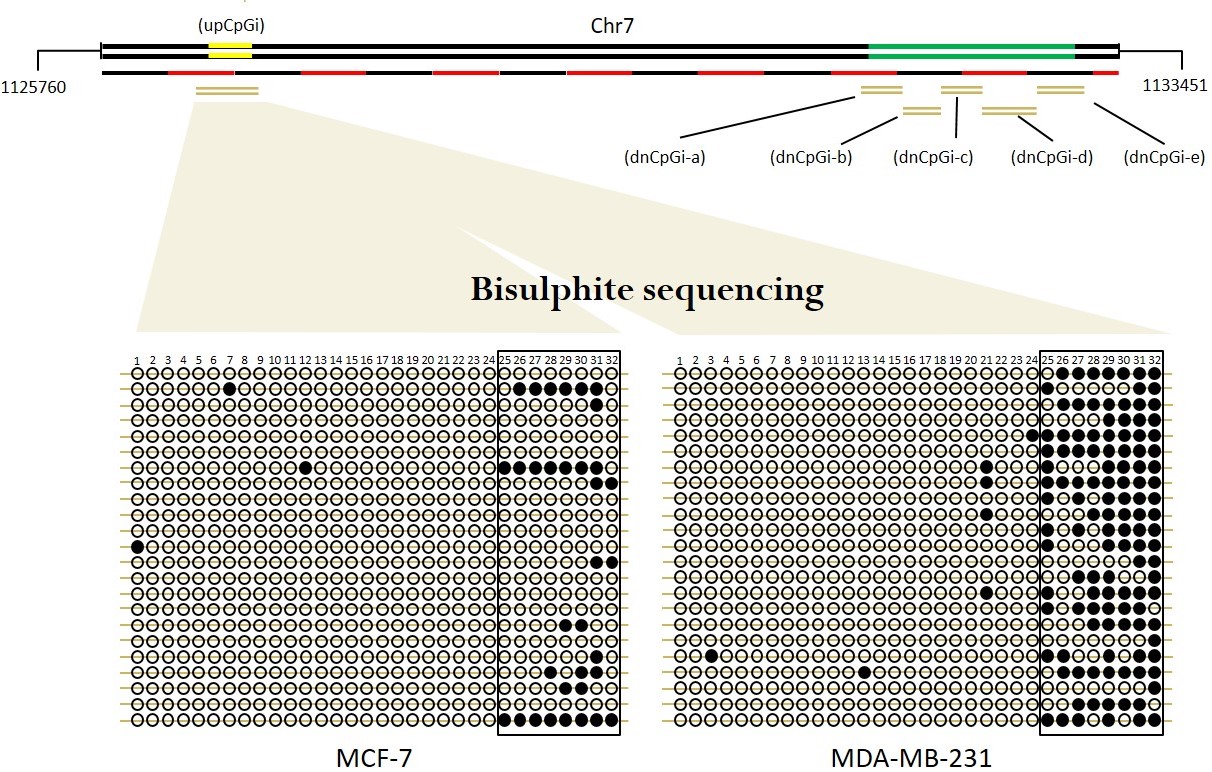Research Themes @ MolEndoLab
Non-genomic estrogen signaling
The G-protein coupled estrogen receptor
Besides inducing genomic effects via the classical estrogen receptors ER-alpha and ER-beta, estrogen induces short-term non-genomic effects via GPER. GPER activation induces cell type or context dependent effects; cell proliferation or cell cycle arrest and apoptosis. Aberrant expression implicates this receptor in endocrine cancers. It is projected as a tumor suppressor, whose expression correlates with prognosis. Clinical data, and results from in vitro studies implicate this receptor in endocrine resistance.

Our research focusses on the mechanisms of GPER regulation. Our finding, that DNA methylation in the upstream CpG island correlates with GPER expression in breast tumors, and breast cancer cell lines, is published (Manjegowda et al, 2017). Our’s is not the only laboratory to demonstrate this. However, one of the highlights of our work is the finding that eight terminal CpG dinucleotides in the downstream end of the island may play a major role in DNA methylation dependent silencing of GPER in breast cancer cells.
There are two other articles published from our laboratory on methylation in the upstream CpG island. Interestingly, these papers deal with methylation and GPER expression in the context of colon cancer cells. Follow the links below to access these articles.
Article: 1, 2
A novel variant of GPER mRNA
Recently we have reported a novel variant of GPER mRNA. At the time of publication of this article, only three transcript variants were curated in the NCBI nucleotide data base. During visualization of the known transcripts in UCSC Genome Browser, we found another transcript, with two exons and a long intron, that was annotated as GPER. This observation led us to investigate more on this variant and we could specifically amplify the transcript using cDNAs from MCF-7 cells, and colon cancer cell lines.
Acess the article with this link